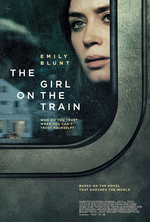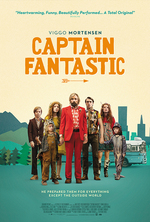Film Screening 24th February, 2017

The Girl on the Train
7:30 PM, 24th February, 2017
- MA
- 112 mins
- 2016
- Tate Taylor
- Emily Blunt, Rebecca Ferguson, Haley Bennett, Luke Evans
Rachel (Blunt) likes to watch people from the train. She likes to tell herself stories about what their lives are like – rather too obsessively, for she also starts to resent it when these strangers don’t live up to her expectations. Then something dreadful happens to one couple she’s fantasising about – someone who lives near where she used to live. It seems she might know the person responsible. In fact, it starts to look as though she might be the person responsible: she’s an alcoholic, and she’s all too aware she has alarming gaps in her memory. All she can do is try to fill in these gaps, hoping the guilty party turns out to be someone other than herself.
The wintry and overcast suburban American setting, the off-balance mood, the background of everyone having secrets and everyone with something to feel guilty about, the hidden violent intrigue within marriages… all of these things screamed Gone Girl to critics and audiences, and the film was unfairly maligned for failing to live up to an example it resembled only by accident; and superficially at that.
The Girl on the Train is more of a conventional thriller-with-a-twist – and none the worse for being so; take it on its own terms and it works beautifully. Blunt gives one of her better performances: a woman constantly on the edge of losing her grip, but with enough residual resourcefulness and good sense for us not to want to give up on her.
Henry Fitzgerald

Captain Fantastic
9:32 PM, 24th February, 2017
- M
- 119 mins
- 2016
- Matt Ross
- Viggo Mortensen, Frank Langella, Kathryn Hahn, Steve Zahn
Ben (Mortensen) and wife Leslie (Trin Miller), socialists at heart and disillusioned with corporate America, have chosen to raise their six kids off grid – literally – in a forest camp in the Pacific Northwest of the USA. The children’s education is rigorous, both mentally and physically. They’re not hippies, unless modern hippies stalk and kill deer with knives and have a thorough knowledge of political science.
The film opens with the death of Leslie, who commits suicide while in hospital for bipolar disorder. Leslie wanted a funeral in line with Buddhist philosophies, but her staunchly conservative parents take charge of her remains and organise a Christian funeral near their home in New Mexico. They blame Ben for her illness and death through his influence and subsequent deviation from their conservative lifestyle. Leslie’s father Jack (Langella) goes so far as to threaten to have Ben arrested if he comes to the funeral. The children want to be there, however, so Ben takes them. Meanwhile, the children’s isolation has left them unprepared for the outside world they experience as they drive south, setting the film up for a clash-of-wills, a clash-of-culture and a coming-of-age road trip.
The movie could have dealt with these themes via clichés but stops short of doing so. It has inconsistencies, however, and it’s a little uneven as though the director Matt Ross couldn’t quite decide what its main direction should be. Viewers who like to have clear-cut ‘goodies’ and ‘baddies’ in films won’t find them here. We’ve all got our faults, including Ben, and for him there’s also a coming-of-age of sorts. Come to the screening and see how that works out.
Dallas Stow